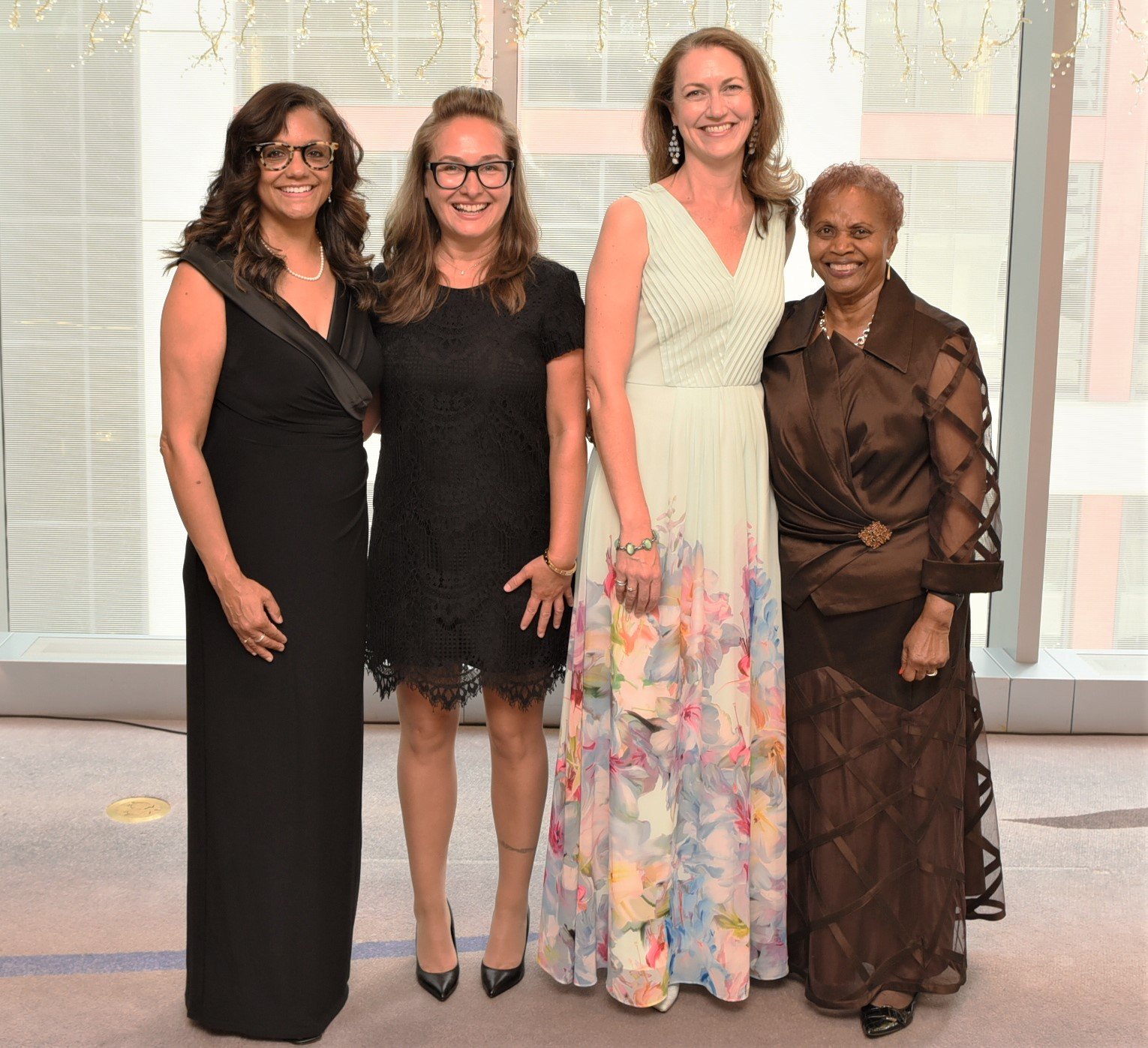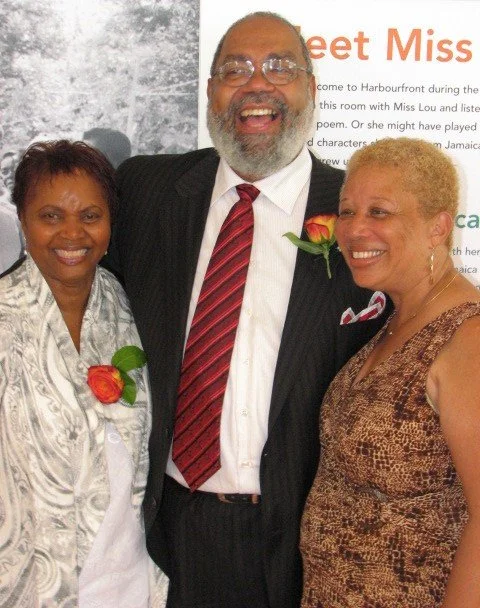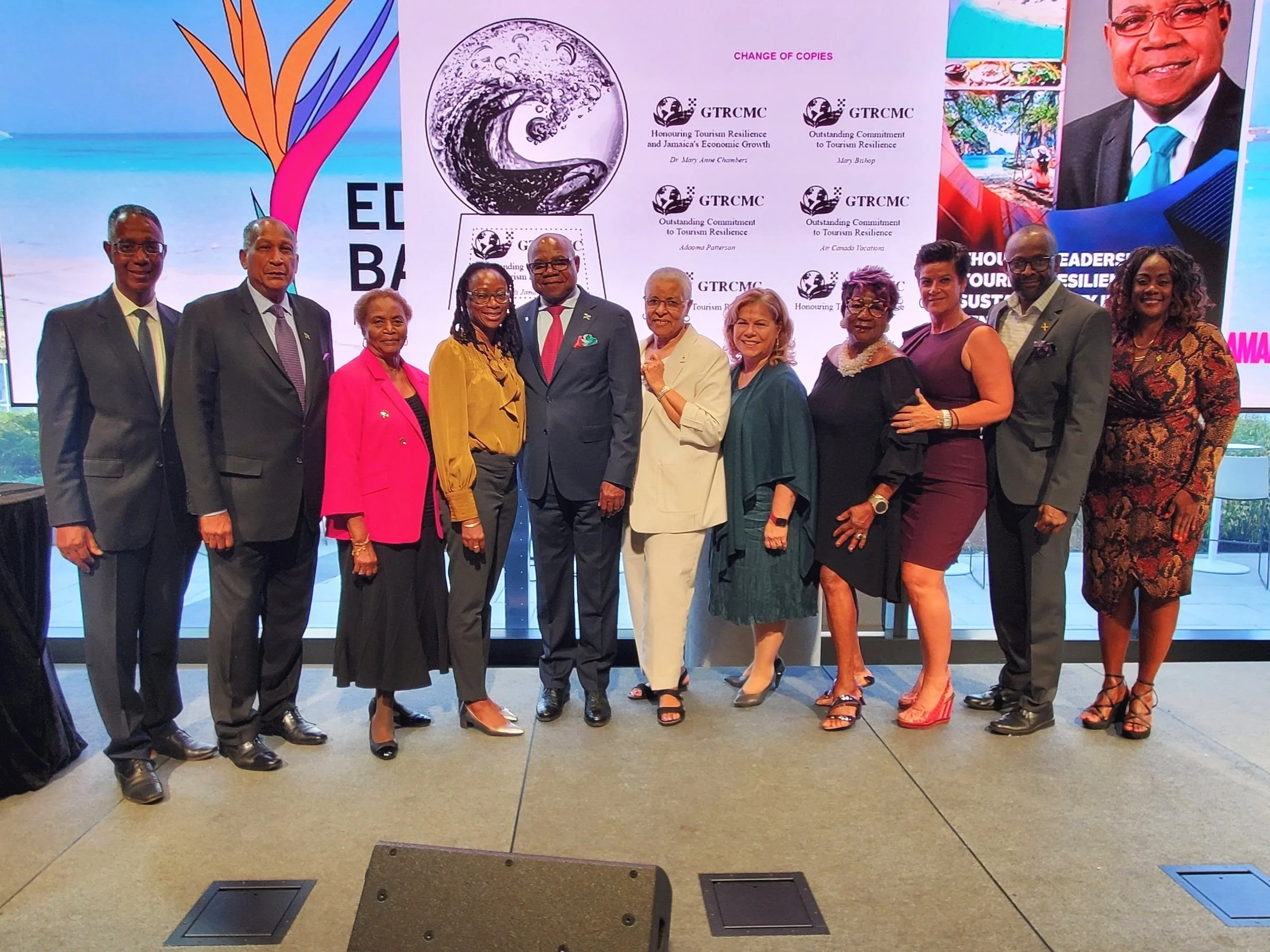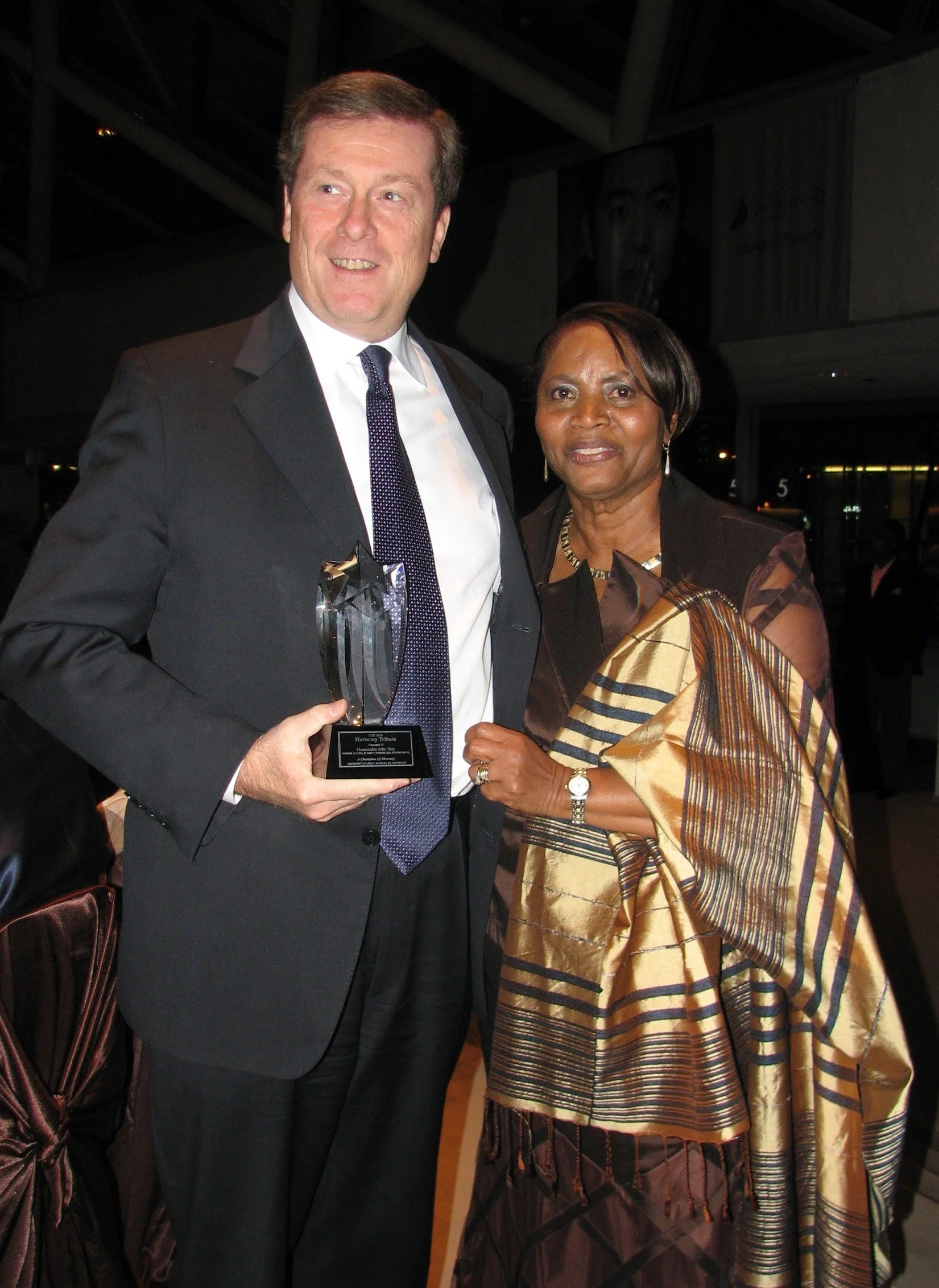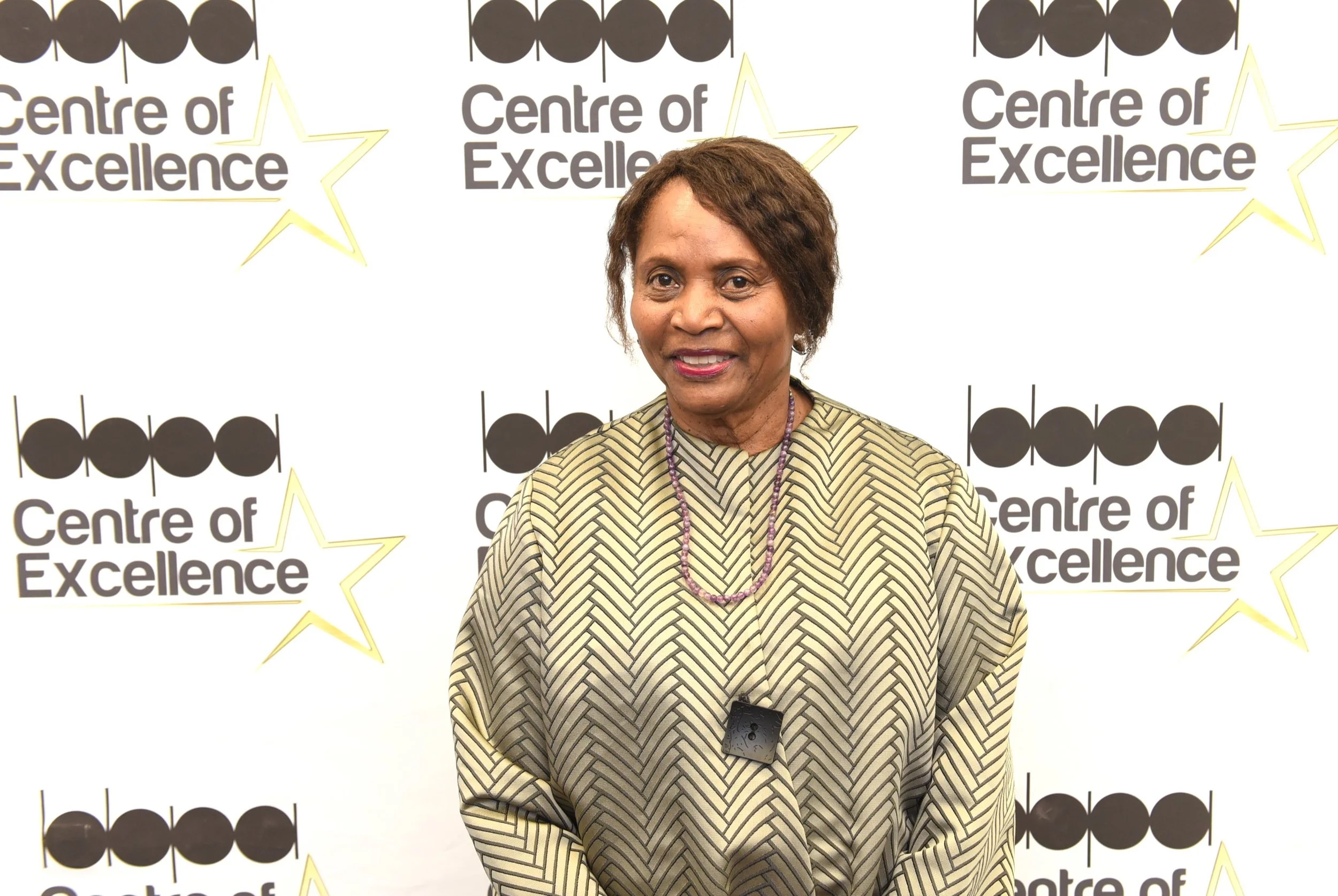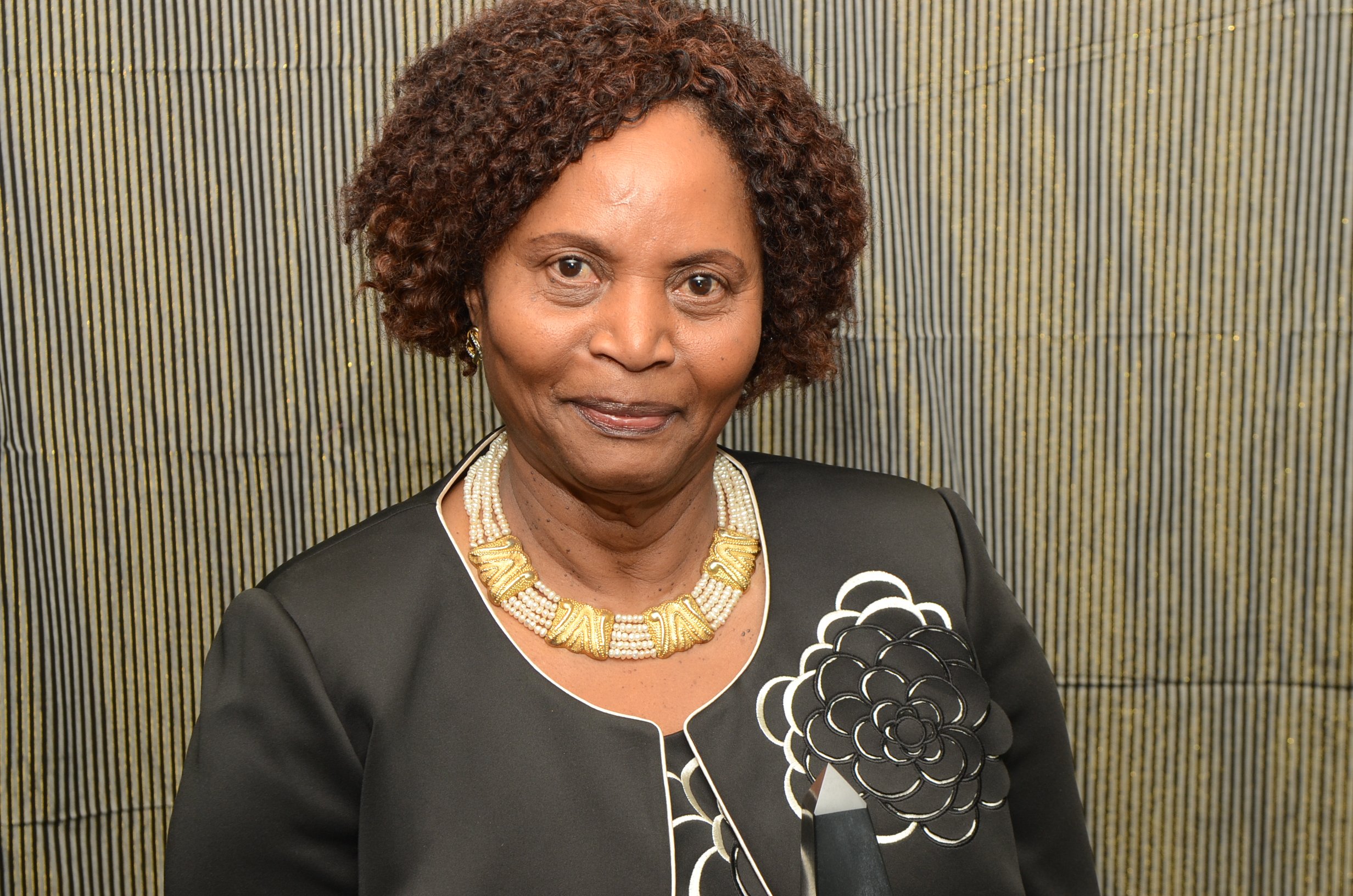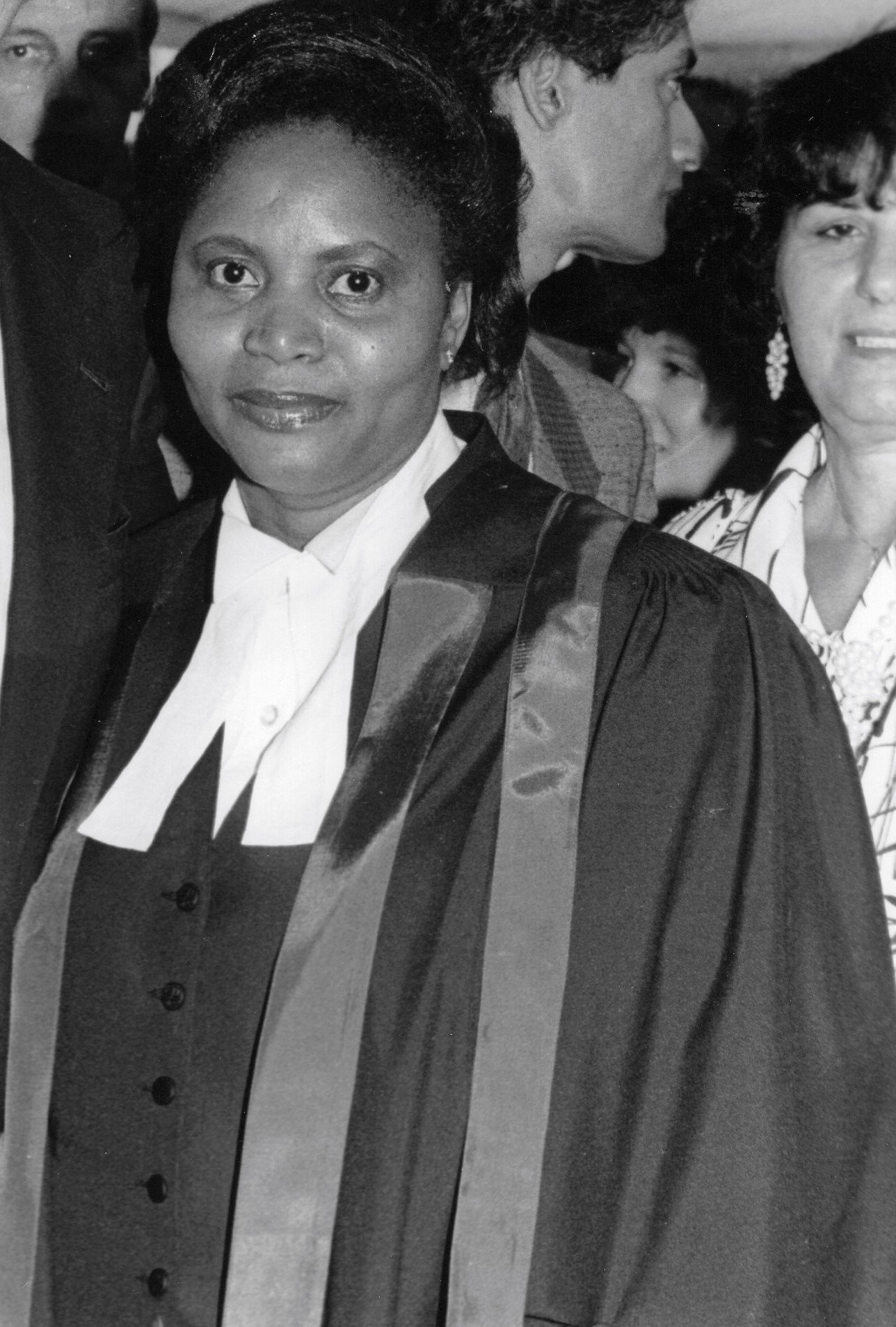Pamela Appelt has lived a life of meaning
April 1, 2024
Some people waste time worrying about wasting time.
Pamela Appelt, Canada’s first Black woman Citizenship Court Judge, does not have that problem.
While ensconced in the Sciences, she made use of her downtime.
“There were periods when I was setting up an experiment and you have some breaks in between,” said Appelt who was a Biochemist at Queen Elizabeth Hospital and a Researcher in Medical Biochemistry at McGill University in Montreal. “I don’t like to waste time, so I joined an organization.”
The Christian Women’s Club (CWC) members were all White then.
“I wanted to get an insight about how people from other communities and racial groups function,” said Appelt. “This was an older group of women from Westmount, but I didn’t mind. They embraced me and made me their Social Convenor.”
That was right up her alley as she enjoys talking, listening and socializing.
It was also the beginning of her community service that has spanned close to five decades.
In that time, Appelt has delivered countless hours of volunteer service and given thousands of dollars to scholarships and community initiatives without expecting anything in return.
Consul General in Toronto George Ramocan (l), Pamela Appelt, Betty Steinhauer, Philippines Consul General Pedro Chan, Jamaica’s High Commissioner Sheila Sealy-Monteith and Diana Burke at the People Bridge Foundation handing over ceremony in October 2011 (Photo by Ron Fanfair)
At an event in Toronto in 1987 to celebrate Jamaica’s 25th independence anniversary, then Prime Minister Edward Seaga challenged nationals in Canada to increase support for their birth country, particularly in the field of education.
That part of the speech resonated with Kittitian-born historian Dr. Sheldon Taylor who was in the audience and pursuing graduate studies.
At home a few hours later, he wrote a letter on his Underwood Typewriter and mailed it to the late Dr. Mavis Burke.
“When education was mentioned, she was the first person I thought of,” recalled Taylor. “In the letter, I told her what I heard and she responded by calling a meeting.”
Out of that get-together emerged Women for PACE (Project for the Advancement of Childhood Education) that later became PACE Canada which has adopted nearly 400 Basic Schools in Jamaica in the last 37 years.
Nearly six weeks after PACE was registered, Appelt and her late husband David Appelt hosted a dinner at their home in November 1990.
“While trying to figure out what I was going to do to help the organization get off the ground, David reminded me they are going to need money,” the former Clarke Institute of Psychiatry volunteer recalled. “He inquired if I was going to write a cheque or let us do something. He invited some of his people who worked in the corporate sector, we had a gathering of about 25 in our home and we raised ‘big money’.”
From its inception 16 years ago, Appelt has been an honourary patron of the Viola Desmond Awards which celebrate outstanding Black women who are role models and advocates. It is part of the Toronto Metropolitan University Black History Awareness series.
Mayann Francis (l), Vivian Barbot, Pamela Appelt & Dr. Malinda Smith were honoured at Toronto Metropolitan University's 10th Viola Desmond Day Awards in May 2018 (Photo by Ron Fanfair)
Shortly after becoming a Citizenship Court Judge in 1987, she was invited to speak at an event in Nova Scotia.
The title of the presentation was ‘Citizenship, Culture and the Black Community’ which the Nova Scotia Black Cultural Centre published as a booklet a year later and sold for $20.
At the event, the late Carrie Best told Appelt she had a responsibility to educate new Canadians about Desmond.
“At the time, I just knew a little about her,” she admitted. “The next year, Carrie invited me to her birthday and inquired how I was doing in my quest to spread the word about Desmond. When the awards committee asked me to be their Patron, I smiled widely because, by that time, I knew everything I needed to know about Viola.”
Appelt, who has supported the University of the West Indies Toronto Gala Awards from the beginning in 2009, will be honoured with a Vice-Chancellor Award at this year’s fundraising event on April 20 at the Ritz Carlton in downtown Toronto.
“Though I have never seen myself as the beneficiary of a UWI Award, I am grateful and humbled,” she pointed out. “I am not someone who cries easily, but one year I was brought to tears when I heard a young student articulate how much the UWI scholarship meant to her. I am not impulsive, but I wrote a cheque right away. I admire very much what the organization is doing.”
Pamela Appelt (r) with Lincoln Alexander School of Law Dean Donna Young (l), Toronto Metropolitan University Senior Director of Advancement Michelle Hunslow and Lincoln Alexander School of Law Executive Director of Advancement MaryClare Brooks at the 2022 UWI Toronto Gala (Photo by Ron Fanfair)
The UWI Toronto event has raised over $3 million and funded nearly 700 scholarships.
As Co-Executor of the late Louise Bennett-Coverley (Miss Lou) estate, Appelt was instrumental in McMaster University acquiring the Jamaican cultural icon archive that included audiovisual performances, correspondences, awards and other material.
The handing-over ceremony took place in February 2011.
Since acquiring the Miss Lou Archive, the Library has digitized significant portions of the collection, providing scholars with online access to these materials. As well, the Library has developed a rich partnership with the National Library of Jamaica, working to jointly support and promote Miss Lou’s historical record.
“They are getting to know Jamaica and they have reached out to Jamaica because of that connection,” said Appelt who received an honourary doctorate from McMaster in 2012. “It is a solid one and they are building community.”
Pamela Appelt (l) with Fabian Coverley and Sandra Whiting at the opening of Miss Lou’s Room at Harbourfront in July 2007 (Photo by Ron Fanfair)
Introduced to the Jamaican Canadian Association (JCA) by Rupert James who was President from 1981 to 1984, she contributed to the organization’s building fund.
“I also love attending events there where they honour people who are making a difference in the community,” said Appelt who co-ordinated Jamaica’s 21st birthday celebration for the Jamaican Consulate in Toronto.
A former Chair and Director of Harbourfront Corporation, Appelt once turned her Oakville backyard into a mini Harbourfront Centre and raised over $20,000.
“When you are on the Board, you write a cheque,” she said. “Some members wrote huge ones which I could not at the time. I am an excellent cook and my neighbours love my food. They came and paid almost $350 each and that is how I was able to raise that sum.”
Appelt mastered the art of cooking after meeting her husband.
“His parents invited me over to their home several times for dinner, so I decided I was going to cook something when they came over to our place,” she said. “The only thing I could remember was how to cook steak with onions which I did when I was with my parents. David told me the steak was wet and had too much stuff on it.”
Pamela Appelt (third from left) with Dr. Gervan Fearon (l), Howard Shearer, Adaoma Patterson, Jamaica’s Tourism Minister Edmund Bartlett, Mary Anne Chambers, Air Canada Vacations VP of Product Development Dina Bertolo, Mary Long, Natasha Borota, Jamaica Tourist Board Director of Tourism Donovan White & Jamaica Tourist Board Regional Director in Canada Angella Bennett (Photo by Ron Fanfair)
Always up to a challenge, Appelt vowed to do better.
Long before Gordon Ramsay showed off his exceptional culinary skills on television, Graham Kerr’s Emmy Award-nominated ‘The Galloping Gourmet’ show in the late 1960s and early 1970s was a hit in Canada, the United States and Europe.
He also ran a private cooking school in Canada’s capital.
Appelt made the two-hour drive from McGill University’s McIntyre Medical Science Building to the school in Ottawa to enhance her culinary skills.
“Like the top chefs, there are certain dishes I can prepare like the Duck a L’Orange and flambe dishes,” she said. “If I have to write a speech, I cook. If I am feeling sick, I cook and I feel better. Cooking is my therapy.”
Appelt owned a catering service for nine years up to 1987 and was Excellence magazine Food Editor for a year in the mid-1980s.
Pamela Appelt presents a Harmony Award to John Tory in 2010 (Photo by Ron Fanfair)
Highly respected and revered, leaders in Canada and the Caribbean reach out to her for suggestions, advice and support.
Before speaking at the Harry Jerome Awards 36 years ago, late Prime Minister Brian Mulroney, through his Chief of Staff, contacted her to inquire what message he should deliver.
“I told the Chief of Staff I was very happy that he had accepted the invitation,” the Black Business & Professional Association co-founder recounted. “I also told him that the PM had to appoint someone from the Black community to a major position in Canada and he had to address the anti-apartheid system in South Africa and Nelson Mandela’s incarceration. While engaged in some small talk, he suggested I write Mulroney’s speech which I did.”
At the Harry Jerome Awards in March 1988, Mulroney announced that Gilbert Scott would be the first visible minority public service Commissioner. Migrating with his family from Jamaica in 1968, he was a Meteorologist with Environment Canada and a Liaison Officer with the Secretary of State with responsibility for Caribbean & African Affairs before the historic appointment.
Pamela Appelt co-founded the Black Business & Professional Association that administers the Harry Jerome Awards (Photo by Ron Fanfair)
When Scott expressed an interest in returning to Jamaica to serve in the public service, Appelt played a leading role in facilitating the transition.
“When Gil told me he was ready to go back home, I advised him to send me his resume which he did,” the past Harry Jerome Scholarship Fund Board Member said. “Within a week, he was in Jamaica for an interview and he has not looked back.”
Scott, 83, was a Permanent Secretary in the Ministry of National Security.
In supporting her birth country, Appelt is an advisor to Minister of Culture Gender, Entertainment and Sport Olivia ‘Babsy’ Grange and a Director of the Institute of Jamaica.
At an early age, it was evident she was going to be a leader and changemaker.
To celebrate L.L Simmonds who was Jamaica’s third Minister of Education and the first from the island’s northeast, the parish schools organized a reception in 1951.
Appelt, who was eight at the time, spoke on behalf of the students.
“I did the presentation without notes and, at the end, the Minister lifted me,” the longtime Community Foundation of Oakville member recounted. “I cried because I thought it was not right.”
Appelt has a passion for young people and making lives better.
“That comes from my grandmother,” the former Ontario Custody Review Board and the Child & Family Services Review Board Member said. “I was one of two grandchildren, but she always looked out for others. If children didn’t have lunch money, she would provide their parents with funds. I grew up with that around me. Children are our future and they need support and guidance.”
Pamela Appelt has been an Oakville resident since 1979 (Photo by Ron Fanfair)
In 1986, Hurricane Gilbert ravaged the small community of Preston in the parish of St. Mary where Appelt was born and raised. A large chunk of the community was displaced following landslides that destroyed farmlands.
The late Lloyd Garvey, who grew up close to Appelt and completed his Ph.D. at McGill University before becoming an Associate Professor of Pharmacology at Howard University, sparked her interest in the Sciences.
“Lloyd attended Excelsior Community College and was very bright,” she recalled. “When he returned to our community for the holidays, every conversation with him revolved around Science. That impacted me and all I wanted to do was something in that field.”
At West Indian Training College which morphed into Northern Caribbean University (NCU), Appelt pursued Chemistry and left with an Associate degree.
“Diabetes runs in my family and I foresaw a time when I would become a top scientist and discover a cure,” she said. “I liked being in the lab and playing with test tubes.”
Pamela Appelt (third from left) joined Juliet Holness (l), Dr. Andrea Davis, Joe Halstead, Tka Pinnock and Howard Shearer at the Jamaica 55 Canada Committee & Jean Augustine Chair at York University lecture at York University in October 2017 (Photo by Ron Fanfair)
In the early 1960s, Appelt went to England to get higher education and join her parents who were part of the Windrush Generation.
While pursuing post-graduate studies, a Professor encouraged her to consider attending McGill University.
He figured Appelt would benefit from training under the late Professor Terry Wood who had done advanced work in diabetes.
Arriving in Canada in 1965, she fell in love with David Appelt who was in her class.
“The plan was to come here, do my studies and return to England,” noted Appelt who serves on the Board for the International Center for Human Rights and Democratic Development and the Harmony Movement of Canada. “After meeting David who thought the world of me, that plan was aborted.”
Their marriage produced two children.
Switching to law and becoming a Tax expert, David Appelt succumbed to cancer in August 1992.
He was a friend of Donald Moore who visited the home during his illness.
“Uncle Don got someone to drive him over here and they would have a drink of Mount Gay rum, which he knew David liked, and talk,” said Appelt who was a member of the Greater Toronto United Way Board of Trustees and a John Brooks Scholarship Foundation Patron.
During her time in Montreal, the octogenarian developed an interest in painting.
While watching a Professor on television talking about decoupage which is the art of decorating an object by gluing paper cutouts onto it in combination with special effects, gold leaf and other decorative pieces, she became hooked.
“You had to use forceps and tweezers that I was already using in the lab, so I thought I could do that,” said Appelt who served on the Yee Hong Centre for Geriatric Care Board of Governors from 1996 to 1999. “I invited this woman Professor to come to Montreal to speak to the CWC members which she did.”
Appelt enrolled in art school and received extra lessons from someone who lived close to her and excelled in decoupage.
“I resided in a Jewish community then and they saw my work and liked it,” the B’nai Brith Canada Black-Jewish Dialogue Founding Member and former Spelling Bee of Canada volunteer said. “I started to sell my pieces and was invited to exhibitions in Canada and the United States.”
On learning that the emerging artist was Jamaican-born, Appelt was invited to her birth country to present an exhibition. A total of 38 of her 40 pieces were sold on opening night.
Her work has also been displayed at Ottawa’s City Hall, the American Museum of Natural History and the Bedford Stuyvesant Restoration Centre in New York and the House of Fine Art in Miami.
In 1981, T. Eaton Company Ltd. commissioned Appelt to prepare a replica of the first Eaton Store in 1869.
She has gifted her art to Mandela, Archbishop Desmond Tutu and Mulroney.
While speaking at a Black History Month event at a Malton church in February, five members approached Appelt, saying she was the Judge who swore them in when they became Canadian citizens.
Pamela Appelt was Canada’s first Black woman Citizenship Court Judge (Photo contributed)
Hearing that after stepping down from the Bench 26 years ago means a lot to her.
“I am still humbled that I was the one chosen by Canada to welcome citizens from other countries,” she said. “What a joy and gift that was. That is something I did not take lightly.”
Being privileged to give to organizations and initiatives, many in the Black community, is also something Appelt does not take for granted.
“There were people who worked tirelessly for organizations to be where they are today,” added the 1987 NCU honourary doctorate recipient. “I spent many late nights attending meetings and trying to get some on sound footing. Whatever happens in a Black organization does not affect that entity alone. It affects all of us. We must ensure that what we do is above board all the time.”




